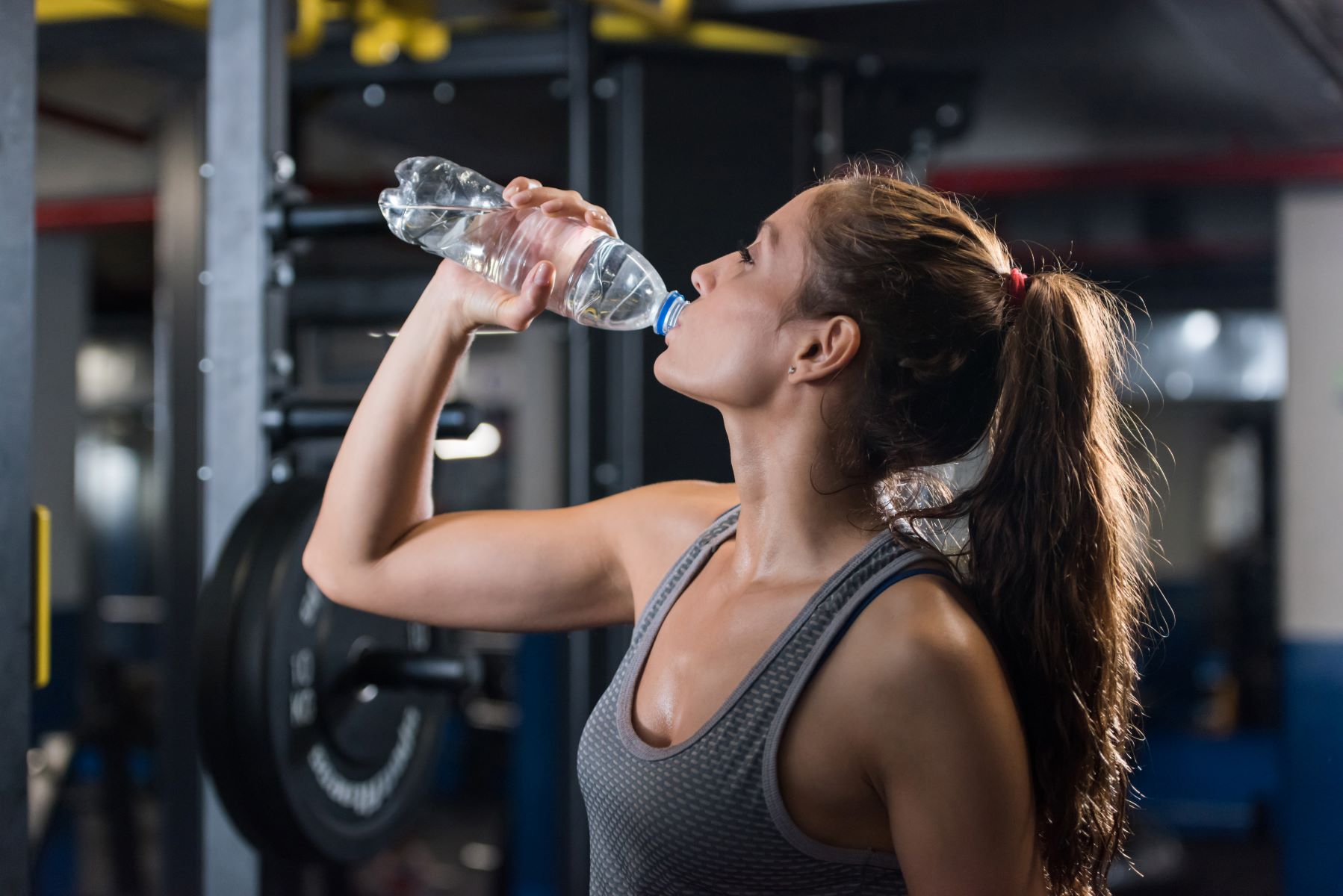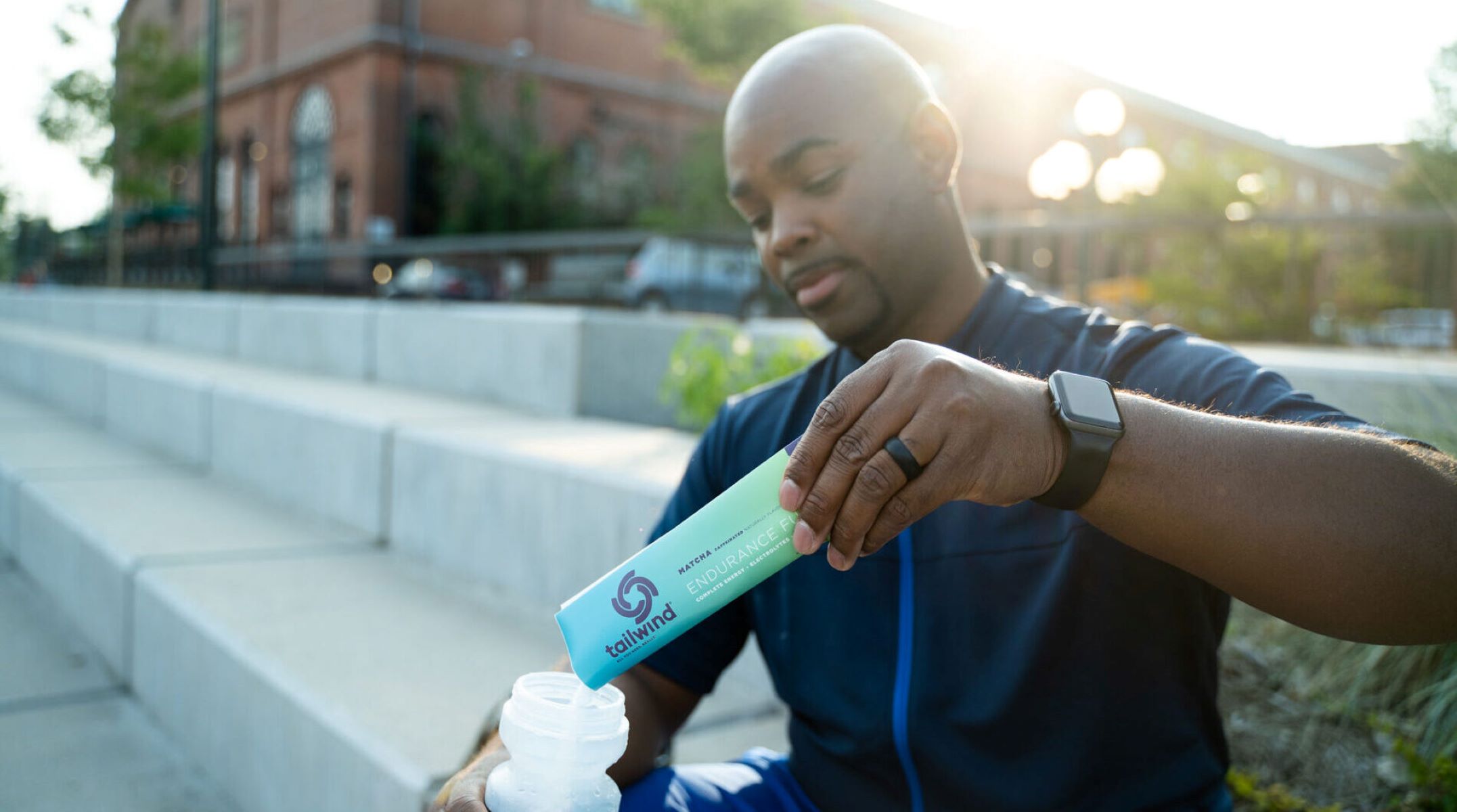

Featured
What Should I Drink After Workout
Modified: January 2, 2024
Discover the best post-workout drink options to replenish your body and maximize results. Find out the featured drinks that will help you recover and hydrate effectively.
Introduction
After an intense workout session, it’s important to replenish your body’s fluids and nutrients to aid in recovery and maximize the benefits of your exercise. Hydration plays a crucial role in supporting muscle function, regulating body temperature, and promoting overall well-being.
But with so many options available, what should you drink after a workout? In this article, we will explore various post-workout drink choices and their benefits. Whether you are a fitness enthusiast, an athlete, or someone looking to recover and refuel after a workout, we’ve got you covered.
It’s worth noting that the choice of post-workout drink depends on several factors, such as the intensity and duration of your workout, your personal goals, and any specific dietary requirements you may have. It’s always a good idea to consult with a healthcare professional or a nutritionist to determine the best drink options for your individual needs.
In the following sections, we will delve into a variety of post-workout drink options, ranging from basic choices like water to more specialized options like sports drinks and protein shakes. Keep in mind that these options are not mutually exclusive, and you may find that a combination of different drinks works best for you.
Remember, hydration is key to replenishing lost fluids and ensuring optimal recovery. Let’s dive in and explore the various post-workout drink options available to you!
Importance of Post-Workout Hydration
Proper hydration is essential for optimal performance and recovery during and after exercise. When you work out, your body loses water through sweat, and this can lead to dehydration if not replenished adequately. Dehydration can result in decreased exercise performance, muscle cramps, fatigue, and even dizziness.
Post-workout hydration is crucial for several reasons. Firstly, it helps restore the fluid balance in your body. Rehydrating after a workout helps maintain the proper functioning of your cells, organs, and systems. It also aids in digestion, nutrient absorption, and the removal of waste products from your body.
Secondly, adequate hydration supports muscle recovery. Exercise causes micro-tears in your muscles, and proper hydration helps repair these muscles and promote growth. When you’re dehydrated, the recovery process slows down, and you may experience prolonged muscle soreness.
Hydration also plays a vital role in regulating your body temperature. During exercise, your body temperature rises, and sweating helps cool you down. Replenishing fluids after a workout helps maintain your body’s temperature within a normal range.
Furthermore, staying properly hydrated can improve your overall energy levels. Dehydration can leave you feeling fatigued and drained, making it harder to perform at your best. By replenishing fluids, you can boost your energy levels, potentially enhancing your performance in subsequent workouts.
Lastly, hydration supports cardiovascular health. When you exercise, your heart works harder to pump oxygenated blood to your muscles. Proper hydration helps maintain healthy blood volume, reducing the strain on your heart and improving your cardiovascular endurance.
So, it’s clear that post-workout hydration is essential for optimal recovery, muscle repair, temperature regulation, and overall performance. Without proper hydration, you may experience decreased energy levels, increased muscle soreness, and a higher risk of injuries. Drinking the right fluids after a workout can go a long way in supporting your fitness goals and ensuring you stay at the top of your game.
Water
When it comes to post-workout hydration, water is the most fundamental and readily available option. After an intense workout session, your body needs water to replace the fluids lost through sweat and maintain proper hydration levels.
Water is essential for many bodily functions, including the transport of nutrients, regulation of body temperature, and lubrication of joints. It is a calorie-free and natural way to rehydrate your body without any added sugars or artificial ingredients.
Drinking water after a workout helps restore the balance of electrolytes in your body, which are essential for muscle function and overall hydration. It is particularly important to replenish your fluids if you have engaged in a high-intensity or prolonged exercise session.
One effective way to monitor your hydration levels is by checking the color of your urine. Pale yellow or clear urine indicates that you are well-hydrated, while darker urine suggests dehydration. Aim for light-colored urine as an indicator that you are adequately hydrated.
The amount of water you should drink post-workout depends on various factors, such as the duration and intensity of your exercise, as well as your body size and individual needs. As a general guideline, try to drink at least 16 to 20 ounces (about 500 to 600 ml) of water within two hours after your workout.
To make your water more refreshing and enjoyable, you can add a squeeze of lemon or lime for a burst of flavor and a dose of vitamin C. You can also infuse your water with fruits, such as strawberries or cucumber, to add a subtle hint of taste without any added sugars or calories.
Remember to drink water consistently throughout the day, not just after your workout. Staying hydrated before, during, and after exercise is crucial for maintaining optimal performance and supporting your body’s recovery process.
In summary, water is a simple, accessible, and essential post-workout drink. It helps rehydrate your body, supports overall hydration levels, and aids in the recovery process. So, be sure to grab a bottle of water and sip your way to proper hydration after your next workout!
Sports Drinks
When engaging in prolonged or intense workouts, sports drinks can be a viable option for replenishing fluids and electrolytes. Sports drinks are specifically designed to provide the body with the necessary hydration, carbohydrates, and electrolytes needed for sustained physical activity.
One of the main advantages of sports drinks is their ability to replenish electrolytes, which are minerals that help regulate fluid balance and muscle function. When you sweat, you not only lose water but also electrolytes like sodium and potassium. Sports drinks contain these electrolytes in specific ratios to help restore what’s been lost.
In addition to electrolytes, sports drinks often contain carbohydrates in the form of sugars. These carbohydrates provide a quick source of energy to fuel your muscles during extended workouts. The sugars in sports drinks can help maintain blood sugar levels and delay the onset of fatigue, especially during longer endurance exercises.
However, it’s important to note that sports drinks should be used strategically and in moderation. They are most beneficial for activities lasting longer than 60 minutes or for high-intensity workouts where you sweat excessively. If your workout is shorter or less intense, water is usually sufficient for hydration.
Another consideration is the calorie content of sports drinks. Some sports drinks can be high in calories due to added sugars. If weight loss or weight maintenance is one of your goals, be mindful of the calorie content and opt for lower-calorie or sugar-free alternatives.
It’s also worth mentioning that sports drinks are generally not necessary for the average gym-goer or those engaging in light to moderate exercise. For most individuals, simply hydrating with water and consuming a balanced meal or snack to replenish electrolytes and carbohydrates is sufficient.
If you do decide to incorporate sports drinks into your post-workout routine, be sure to read the label and choose those that are low in added sugars and provide the necessary electrolytes for your specific needs. Additionally, timing is important – aim to consume a sports drink within 30 minutes to an hour after exercising to maximize their benefits.
Remember, sports drinks can be a useful tool for hydration during intense and prolonged workouts, but they are not a prerequisite for post-exercise recovery. Assess your needs, consider the intensity and duration of your workouts, and consult with a healthcare professional or sports nutritionist to determine if sports drinks are a suitable addition to your routine.
Coconut Water
Coconut water has gained popularity as a natural and refreshing post-workout drink option. It is the clear liquid found inside coconuts, and it offers several benefits for rehydration and replenishing electrolytes.
One of the primary reasons coconut water is often favored as a post-workout drink is its high electrolyte content. It naturally contains potassium, sodium, magnesium, and calcium, which are essential for maintaining fluid balance and supporting proper muscle function.
Coconut water is particularly rich in potassium, a mineral that plays a vital role in muscle contraction and preventing muscle cramps. Replenishing potassium after a workout can aid in muscle recovery and reduce the risk of post-exercise cramping.
Moreover, coconut water is low in calories and fat, making it a suitable choice for those who are conscious of their calorie intake. It is also a natural source of hydration without any added sugars or artificial ingredients commonly found in other sports drinks.
Another benefit of coconut water is its natural sweetness and pleasant taste. It can be a refreshing alternative to plain water or other post-workout beverages, making it more enjoyable to drink. However, it’s important to note that taste preferences can vary, and some individuals may find the flavor of coconut water less appealing.
While coconut water can be a beneficial post-workout drink, it may not be suitable for everyone. Individuals with kidney issues or those on a low-potassium diet may need to limit their intake, as coconut water can have a relatively high potassium content. If you have any medical conditions or dietary restrictions, it is best to consult with a healthcare professional before incorporating coconut water into your routine.
When selecting coconut water, opt for natural and fresh options rather than those with added sugars or flavorings. Look for organic or pure coconut water without any additional ingredients that can interfere with its natural benefits.
In summary, coconut water is a hydrating and electrolyte-rich option for post-workout recovery. It provides essential minerals, particularly potassium, which supports muscle function and replenishes electrolytes lost through sweat. Give coconut water a try and enjoy its natural sweetness while aiding your body’s rehydration process.
Chocolate Milk
Believe it or not, chocolate milk can be a surprising and delicious option for post-workout recovery. While it may not be the first thing that comes to mind, chocolate milk offers a combination of nutrients that can effectively replenish and restore your body after exercise.
One of the key benefits of chocolate milk as a post-workout drink is its ideal ratio of carbohydrates to protein. It provides a mix of simple sugars from the chocolate and lactose from the milk, which are quickly absorbed and used by your muscles for replenishing glycogen stores. The protein content in chocolate milk helps support muscle repair and growth, aiding in post-exercise recovery.
The unique combination of carbohydrates and protein in chocolate milk has been shown to be beneficial in promoting muscle protein synthesis and glycogen replenishment compared to some traditional sports drinks. This makes it an effective choice for athletes or individuals engaging in high-intensity activities.
Furthermore, chocolate milk is a readily available and affordable option, making it convenient for post-workout consumption. It contains essential vitamins and minerals, including calcium, vitamin D, and B vitamins, which further contribute to overall health and well-being.
It’s important to note that not all chocolate milks are created equal. To reap the benefits, opt for low-fat or skim chocolate milk to minimize the saturated fat content. Additionally, avoid varieties with excessive added sugars. You can even make your own chocolate milk at home using natural cocoa powder and sweetening it to your preference with alternatives like honey or maple syrup.
While chocolate milk can be a suitable post-workout drink option, it may not be ideal for everyone. Individuals with lactose intolerance or dairy allergies should avoid consuming it. However, there are dairy-free alternatives available, such as almond or oat milk, that can be mixed with chocolate powder to mimic the benefits of chocolate milk.
In summary, chocolate milk provides a delicious and nutrient-rich option for post-workout recovery. Its combination of carbohydrates and protein makes it an effective choice for muscle repair and glycogen replenishment. So, next time you’re craving something sweet after a workout, consider reaching for some chocolate milk to satisfy your taste buds and support your body’s recovery process.
Protein Shakes
Protein shakes have become increasingly popular among fitness enthusiasts and athletes as a convenient and efficient way to replenish protein stores after a workout. They offer a quick and easy solution for meeting your protein needs, supporting muscle recovery, and promoting overall muscle growth.
Protein is essential for repairing and rebuilding muscle tissue that is broken down during exercise. Consuming protein post-workout provides the necessary building blocks to support the repair process and optimize muscle growth. Protein shakes are designed to provide a concentrated source of protein, making them an efficient option for post-workout recovery.
There are various types of protein used in protein shakes, such as whey, casein, soy, and plant-based proteins like pea or hemp. Whey protein, derived from milk, is one of the most common and well-studied protein sources used in shakes. It is rich in essential amino acids and is quickly absorbed by the body, making it an excellent choice for immediate post-workout nutrition.
Protein shakes can be tailored to your specific dietary needs and preferences. They come in a variety of flavors and can be easily mixed with water, milk, or your favorite plant-based alternative. Additionally, you can customize your protein shake by adding fruits, vegetables, nut butter, or other ingredients to enhance the taste and nutritional profile.
It’s important to note that protein shakes are most beneficial for individuals who engage in resistance training or intense exercise that requires significant muscle repair and growth. If your workouts are less intense or more focused on cardiovascular activities, you may not need as much protein supplementation.
Timing is also crucial when it comes to protein shakes. Consuming protein within 30 minutes to an hour after your workout can maximize the benefits of muscle repair and recovery. This is often referred to as the “anabolic window,” during which your muscles are more receptive to nutrient uptake.
However, it’s worth mentioning that meeting your protein needs through whole foods should always be a priority. Protein shakes can be a convenient supplement or addition to your diet, but they should not replace a balanced and varied eating plan that includes lean meats, dairy products, legumes, and other protein-rich foods.
As with any dietary supplement, it’s important to choose a high-quality protein powder and consult with a healthcare professional or nutritionist to determine the appropriate portion size and frequency of consumption based on your individual needs and goals.
In summary, protein shakes provide a convenient and efficient way to replenish protein stores after a workout. They support muscle recovery and growth, and can be customized to fit your taste preferences and dietary needs. Consider incorporating protein shakes into your post-workout routine to enhance your overall fitness journey.
Green Tea
While not a traditional post-workout drink, green tea can be a beneficial choice for those looking to enhance their recovery and overall health. Green tea is packed with antioxidants and offers numerous health benefits that can complement your post-exercise routine.
One of the key components of green tea is a group of antioxidants called catechins. These powerful antioxidants have been shown to have anti-inflammatory properties, which can help reduce muscle soreness and promote faster recovery after a workout.
In addition to its anti-inflammatory effects, green tea contains a moderate amount of caffeine. Consuming green tea after a workout can provide a natural energy boost, helping to combat post-exercise fatigue and increase mental alertness. However, it’s important to note that the caffeine content in green tea is lower than that of coffee, so the effects may be milder.
Green tea also has thermogenic properties, meaning it can slightly increase your metabolism and help with weight management. This can be beneficial for individuals looking to lose or maintain weight as part of their overall fitness goals.
Furthermore, green tea is a calorie-free beverage that can boost hydration levels without adding extra calories or sugars to your post-workout routine. Staying properly hydrated is crucial for optimal recovery and overall well-being.
To enjoy the benefits of green tea, it’s best to opt for high-quality loose leaf tea or tea bags. Steeping the tea in hot water for a few minutes will release the beneficial compounds. However, avoid adding excessive amounts of sweeteners or milk, as they can negate some of the health benefits of green tea.
While green tea can be a beneficial addition to your post-workout routine, it’s essential to keep in mind that it should not replace the consumption of water or other hydrating beverages. Green tea can be consumed in conjunction with proper hydration practices to augment the benefits of post-workout recovery and overall health.
As with any dietary choice, it’s important to consider individual preferences and sensitivities. Some individuals may be more sensitive to the caffeine in green tea and may need to limit their intake, particularly if they are sensitive to stimulants or have underlying health conditions.
In summary, green tea offers a range of antioxidants and health benefits that can contribute to post-workout recovery. Its catechins, caffeine content, and hydrating properties make it a unique and refreshing choice for those seeking a different approach to optimizing their fitness regimen. So, consider incorporating a cup of green tea into your post-workout routine for an extra layer of support and a boost of antioxidants.
Fruit Smoothies
Fruit smoothies are a delicious and nutritious option for post-workout recovery. Packed with vitamins, minerals, and antioxidants, these refreshing blends provide a convenient way to refuel and replenish your body after exercise.
One of the key benefits of fruit smoothies is their ability to provide a wide range of nutrients in a single serving. Fruits are naturally rich in vitamins, such as vitamin C and vitamin A, as well as minerals like potassium, magnesium, and folate. These nutrients are essential for overall health and can support your body’s recovery and replenishment after a workout.
Moreover, fruit smoothies offer a great source of natural sugars, which provide a quick source of energy to replenish glycogen stores in your muscles. This can help combat post-exercise fatigue and enhance recovery.
Including protein-rich ingredients in your fruit smoothie can further enhance its post-workout benefits. Adding a scoop of Greek yogurt, a serving of protein powder, or a handful of nuts and seeds can provide the necessary amino acids for muscle repair and growth.
Additionally, fruit smoothies can help with hydration, as they often consist of a liquid base like water, coconut water, or milk. Hydration is essential for optimal recovery, and a fruit smoothie can deliver fluids while also providing essential nutrients.
When making a fruit smoothie, aim for a variety of fruits to ensure you get a diverse range of nutrients. Berries, such as strawberries, blueberries, and raspberries, are rich in antioxidants that can help reduce post-workout inflammation and aid in recovery. Bananas are a popular choice due to their high potassium content, which can help prevent muscle cramps.
It’s important to note that portion control is key when it comes to fruit smoothies. While fruits are packed with essential nutrients, they also contain natural sugars. Be mindful of the portion sizes and adjust the ingredients to fit your nutritional needs and goals, particularly if weight management is a consideration.
Lastly, incorporating healthy fats like avocado or a tablespoon of nut butter to your fruit smoothies can help increase satiety and provide additional nutrients. This can be particularly beneficial if you are using the smoothie as a post-workout meal replacement.
In summary, fruit smoothies offer a delicious way to refuel and replenish your body after a workout. Their nutrient-dense nature, hydrating properties, and versatility make them an excellent choice for post-workout recovery. So, mix up your favorite combination of fruits and other nutritious ingredients to create a post-workout smoothie that tastes great and supports your fitness goals.
Conclusion
Choosing the right post-workout drink is essential for replenishing fluids, restoring electrolytes, and supporting muscle recovery. While water serves as a fundamental and vital option, there are several other beverages that can enhance your post-exercise regimen.
Sports drinks are beneficial for prolonged or intense workouts, as they provide electrolytes and carbohydrates to replenish energy stores and maintain hydration. Coconut water, on the other hand, offers a natural and hydrating alternative with added potassium for muscle function.
For those with a sweet tooth, chocolate milk provides a balanced mix of carbohydrates and protein, fueling muscle recovery and growth. Protein shakes are a convenient option for individuals seeking a concentrated protein source to support muscle repair, while green tea offers a refreshing way to promote anti-inflammatory effects and provide slight thermogenic benefits.
Lastly, fruit smoothies offer a delicious and nutrient-packed choice, delivering essential vitamins, minerals, and antioxidants while helping with hydration and providing natural sugars for energy replenishment.
Remember, the best post-workout drink ultimately depends on individual preferences, dietary requirements, and the intensity and duration of your workouts. It’s essential to listen to your body and experiment with different options to find what works best for you.
Incorporating a combination of these drinks into your post-workout routine can provide a range of benefits and support your fitness goals. However, always remember to prioritize whole foods and proper hydration practices as the foundation of your overall nutrition and recovery.
So, stay hydrated, refuel your body with the nutrients it needs, and enjoy the journey towards a stronger and healthier you!









